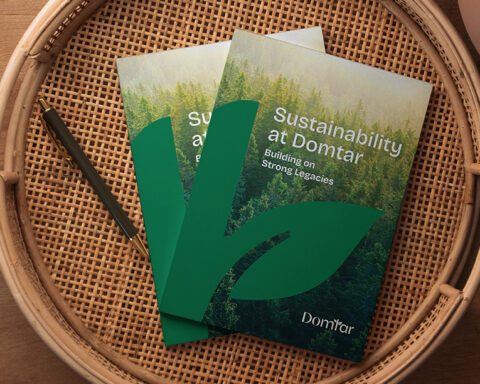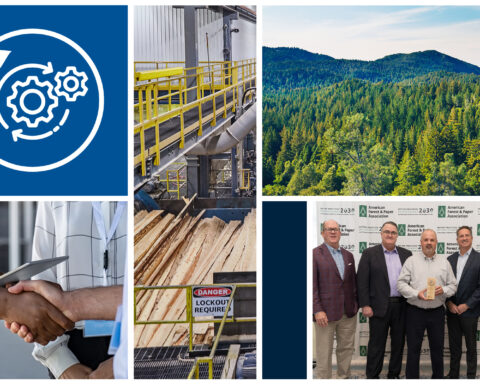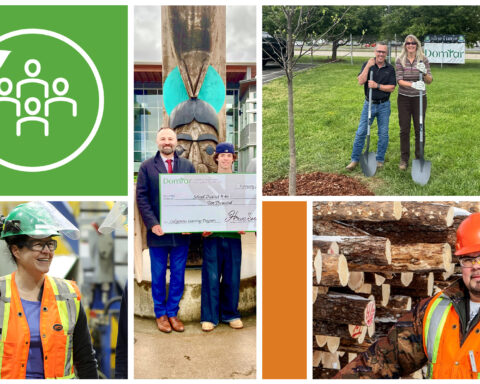For most of us around the world, 2020 was a landmark year. Obviously, it was marked by a global pandemic. But it was also defining for other reasons, including several much-needed societal movements gaining traction.
From the Black Lives Matter movement to climate change activism, consumers – especially young people – have shown it is time to step up and lead the way on positive change. In some ways, corporate Canada did just that, whether working to remove plastic straws and bags or growing initiatives that better support BIPOC in Canada. I firmly believe this was just the tip of the iceberg.
There is a growing expectation for private companies like ours to do more – and rightfully so. We are seeing more and more of our customers, consumers and employees showing their passion for the environment and for social justice. A recent survey underscores this as 63% of millennials note the primary purpose of businesses should be improving society rather than generating profit.
If it was not clear before, 2020 made it so. Expectations have shifted irrevocably, and businesses can and should do more to build more sustainable, equitable communities. It doesn’t have to be at the expense of profit. But it does take partnership.
Non-profits need to innovate – and the private sector can help them do it
For decades, the non-profit sector has tended to lead the way on social change, including environmental initiatives. The sector has been absolutely critical for much of the progress we have seen, from policy changes to influencing consumer behaviour.
At the same time, the world is changing quickly, and challenges continue to emerge. Charities simply can’t make the progress the world needs on their own.
By definition, non-profits already operate with tight budgets, relying heavily on support from grants and community members’ generosity. Last year made their funding challenges even more acute. One report from Imagine Canada even found that two-thirds of Canadian charities had seen their revenue decline by nearly a third because of the pandemic.
As a result, non-profits need to innovate and find new models to fund their important work. It’s here that corporate Canada can play a more impactful role. Non-profits can support us as businesses to be more purpose led and have more impact on our communities. In return, we can help them create new revenue streams.
One of our impactful partnerships is with Mira, a Quebec-based non-profit organization that provides free guide and service dogs for people living with visual impairments, physical disabilities and to youth with Autism Spectrum Disorder. The organization has provided more than 3,700 service dogs for free to people living with disabilities in Canada and the United States. As you can probably imagine, this is not an inexpensive endeavor. The average service dog needs $30,000 to prepare them for life with a person in need.
That’s where partnerships like ours have come into play. Mira collects used HP ink and toner cartridges from our partners and we purchase them back to be recycled through our closed-loop recycling process. Along with offering end users the confidence that their cartridges aren’t ending up in a landfill, this partnership creates a much-needed revenue stream for Mira, which ultimately helps to finance its positive impact on communities.
Multidimensional partnerships mean more resilient communities
For us, this is a powerful partnership because it touches on more than one aspect of sustainability.
On one front is environmental sustainability. Mira is an important partner in helping us create a world without waste. From our supply chain, to our operations, to our technology and service offerings, HP is focused on transforming our entire business to support a circular, low-carbon economy.
One of our key goals at this stage is to recycle 1.2 million tonnes of hardware and printing supplies by 2025, to reduce the waste going into landfills – something Mira is helping us do every day. As of September 2020, the HP & Mira Supplies Recycling Program is also open to HP partners across Canada, to increase participation and return even more cartridges.
Beyond the environmental impact, there is also the social impact. With a nationwide program now in place, more guide dogs and service dogs are getting to the people who need them. This program is about more than sustainability and supporting the circular economy. It’s also about creating equity and empowering more people to reach their full potential.
At HP, we want to drive resilience in our communities and encourage our partners to do the same. We cannot do that without partnerships like this one with Mira. To encourage more powerful alliances, HP has launched its new Amplify Impact™ channel partner program, extending HP’s Sustainable Impact strategy and inviting partners to drive meaningful change across the global IT industry. Partners that pledge to join HP Amplify Impact will tap into HP’s extensive knowledge, training and resources to assess and improve their own sustainability performance while optimizing sustainability-driven sales opportunities. HP Amplify Impact represents a major step forward in the company’s ambitious goal to become the most sustainable and just technology company by 2030.
As I’ve said, expectations have shifted. And when these expectations are met, it’s good for business and for our communities. Let’s create change together.
This article is “sponsored content” as defined by Corporate Knights’ content disclosure policy







